Latest update March 13th, 2023 3:11 PM
Desmond Tutu – Portrait of Africa’s Most Dynamic Cleric
Dec 28, 2012 Samuel Cover Story 0

Greatness is an attribute much in retreat in our society these days. But it is the one quality that is imperative for a continent, for people to make progress. Greatness is the depth of character that is unswayed by material attraction and superficial rewards especially of the sort that is flaunted by person of lesser pedigree, and craved by many including sundry jobbers and petty crook. Greatness is the strength to say NO when everything and everyone else seems swept away by a certain madness that benumbs the senses. Greatness is the ability to look past the present and see beyond the future. It is the courage to envision a better society to insist on what is right, on what is proper to realize that better society such an attribute is all too evident in one wise old, in our continent that man is Bishop Desmond Mpilo Tutu South Africa cleric and activist who rose to worldwide fame. He is the second South African to be awarded the Noble Peace prize. He received the Noble Peace prize in 1984, the Albert Schweitzer prize for Humanitarianism, presidential Medal of Freedom in 2009, and Gandi peace prize in 2005.
He is vocal in his defence of human rights and uses his profile to campaign for the oppressed. He also campaigns for combating AIDS, tuberculosis, homophobia, poverty and racism.
Desmond Mpilo Tutu was born in Klersdorp, Transvaal, and the second of the three children of Zechariah Zililo Tutu and his wife, Aletta, and the only son. Tutu’s family moved to Johannesburg when he was twelve. His father was a teacher and his mother was cleaner and cook at a school for the blind. Here he met Trevor Huddleston who was a parish priest in the black slum of Sophia town. One day,” said Tutu, “I was standing in the street with my mother when a white man in a priest’s clothing walked past. As he passed us he took of his hat to my mother. I couldn’t believe my eyes-a white man who greeted a black working class woman.
Although Tutu wanted to become a physician, his family could not afford the training, and he followed his father’s footsteps into teaching into teaching. Tutu studied at the Pretoria Bantu Normal College from 1951 to 1953, and went on to teach at Johannesburg Bantu High School and at Munsienville High School in Mogale City. However, he resigned following the passage of the Bantu Education Act, in protest of the poor educational prospects for black South Africans. He continued his studies, this time in theology, at St Peter’s Theology College in Rosettenvile, Johannesburg, and in 1960 was ordained as an Anglican priest following in the footsteps of his mentor and fellow activist, Trevor Huddleston.
Tutu then traveled to King’s College London, (1962-166), where he received his Bachelor’s and Master’s degree in Theology. During this time he worked as a part-time curate, first at St. Alban’s Church, Golders Green, and then at St. Mary’s Church in Blenchingly, Surrey. He later returned to South Africa from 1967 until 1972 used his lectures to highlight the circumstance of the African population. He wrote a letter to Prime Minister B.J. Vorster, in which he described the situation in South Africa as a “power barrel that can explode at any time”: the letter was never answered. He became chaplain at the University Of Fort Hare in 1967, hotbed of dissent and one of the few quality universities for African students in the southern part of Africa. From 1970 to 1972, Tutu lecturer at the National University of Lesotho. In 1972, Tutu lectured at the National University of Lesotho.
In 1972, Tutu returned to UK, where he was appointed vice-director of the Theological Education Fund of the World Council of Churches, at Bromley in Kent. He returned to South Africa in 1975 and was appointed Anglican Dean of St. Mary’s Cathedral in Johannesburg the first black person to hold that position.
On 2 July 1955, Tutu married Nomalizo Leah Shenxane, a teacher he had met While at College. They had four children: Trevor Thamsanqa Tutu, Theresa Thandeka Tutu, Naomi Nontombi Tutu and Mpho Andrea Tutu, all whom attended the Waterford Kamhlaba School in Swaziland.
His son, Trevor Tutu, caused by a bomb scare at East London Airport in 1089 and was arrested. In 1991, he was convicted of contravening the Civil Aviation Act by falsely claiming there had been bomb on board a South African Airway’s plane at East London Airports. The bomb threat delayed the Johannesburg-bound flight for more than three hours, costing South African Airways some R28000. At times, Trevor Tutu announced his intension to appeal against his sentence, but failed to arrive for appeal hearings. He forfeited his bail of R15OOO. He was due tobegining serving his sentence in 1993, but failed to hand himself over to prison authorities. He was finally arrested in Johannesburg in August 1997. He applied for amnesty from the Truth and Reconciliation Commission which was granted in 1997. He was then released from Goodwood Prison in Cape Town where he had begun serving his three and a half year prison sentences after a court in East London refused to grant him bail.
Naomi Tutu founded the Tutu Foundation for Development and Relief in Southern Africa, based in Hartford, Connecticut. She attended the Patterson School of Diplomacy and International Commerce at the University of Kentucky and has followed in her father’s footsteps as a human rights activist. She is currently a program coordinator for the Race Relations Institute at Fisk University, in Nasville, Tennessee. Desmond Tutu’s other daughter, Mpho Tutu, has also followed his father footsteps and in 2004 was ordained an Episcopal priest by her father. She is also the founder and Executive Director of the Tutu Institute for Prayer and Pilgrimage and the chairperson of the board of the Global AIDS Alliance.
In 1997, Tutu was diagnose with prostrate cancer and underwent successful treatment in the US. He subsequently became patron of the South African Prostrate Cancer Foundation which was established in 2007.
Beginning on his 79th birthday, Tutu has entered a phased retirement from public life, starting with only one day
Per week in his office until the end of February 2011. On 23 May in Shrewsbury, Massachusetts, Tutu gate what is said by to be his last major public event outside of South Africa Tutu will honour his commitments through May 2011 and will add no more commitments. Tutu has since come out of retirement to give a commitment speech at Gonzaga University Spokane Washington on May 13, 2012.
In 1990, Tutu and the ex-Vice Chancellor of the University of the Western Cape Professor Jakes Gerwel founded the Desmond Tutu Educational Trust was established to fund developmental programmes in tertiary education and provides capacity building at 17 historically disadvantaged institutions. Tutu’s work as a mediator in order to prevent all-out racial war was evident at the funeral of South African Communist Party leaders Christ Hani in 1993. Tutu spurred a crowd of 120, 000 to repeat after him the chants, over and over: “we will be free”, “All of us”. “Black and white together”, and his finished his speech saying.
We are the rainbow people of God! We are unstoppable! Nobody can stop us on our march to victory! No one, no guns, nothing! Nothing will stop us for we are moving to freedom! We are moving to freedom and nobody can stop us! For God is on our Side.
After the fall of apartheid, Tutu headed the Truth and Reconciliation Commission. He tired as Archbishop of Cape Town in 1996 and was made emeritus Archbishop of Cape Town, an honorary title that is unusual in the Anglican Church. He was succeeded by Njongonkuklu Ndungane. At a thanksgiving for Tutu upon his retirement as Archbishop in 1996, Nelson Mandela said: his joy in our diversity and spirit of forgiveness are as much part of his immeasurable contribution to our nation as his passion for justice and his solidarity with the poor. Tutu is generally credited with the coining of the term Rainbow Nation as a metaphor for post-apartheid South Africa after 1994 under African National Congress rule. The expression has since entered mainstream consciousness to described South Africa’s ethnic diversity. Since his retirement, Tutu has worked as a global activist on issues pertaining to democracy, freedom and human rights.
Tutu is widely regarded as “South Africa’s moral conscience” and has been described by former President of South Africa, Nelson Mandela, as “sometimes strident, often tender, never afraid and seldom without humour, Desmond Tutu’s voice has always been the voice of the voiceless” since his retirement, he has worked to critique the new South African government. He has been vocal in condemnation of corruption, the ineffectiveness of the ANC-led government to deal with poverty, and the recent outbreaks of xenophobic violence in some townships in South Africa.
He made a stinging attach against South Africa’s political elite, saying the country was “sitting on powder keg” because of its failure to alleviate poverty a decade after apartheid’s end. Tutu also said that attempts to boost black economic ownership were only benefiting an elite minority, while political “kowtowing” within the ruling ANC was hampering democracy. Tutu asked, “what is black empowerment when it seems to benefit not the majority but an elite that tends to be recycled?”
Advertise Here
Tourism
-
 TOP 8 Tourists Attraction Centers In Africa
TOP 8 Tourists Attraction Centers In AfricaMar 11, 2019 0
THE PYRAMIDS AND THE SPHINIX The pyramids and the Sphinix... -
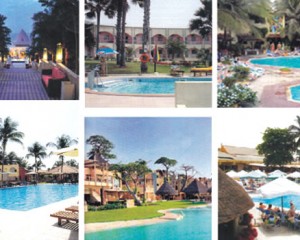 Top Hotels in Gambia
Top Hotels in GambiaMay 23, 2015 0
COCO OCEAN RESORT AND SPA With its discreet whitewashed... -
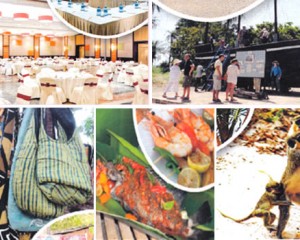 Destination Gambia
Destination GambiaMay 22, 2015 0
GAMBIA RATES HIGH FOR ‘CONFERENCE APPEAL’ Famed for its... -
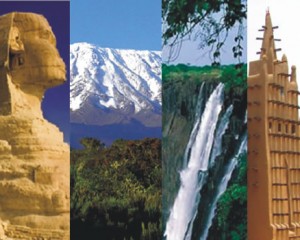 TOP 12 Tourist Attractions In Africa
TOP 12 Tourist Attractions In AfricaNov 19, 2014 0
… And if you have chance for picnic in Africa here is the...
Icon & Special Reports
Views
-
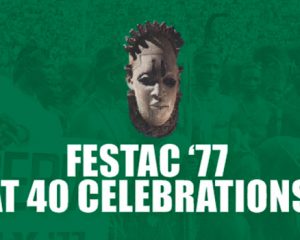 Festac’77 at 40 Celebrations, Olusegun Obasanjo Decorated...
Festac’77 at 40 Celebrations, Olusegun Obasanjo Decorated...Nov 11, 2017 0
The world Black and Arts festival that was hosted in... -
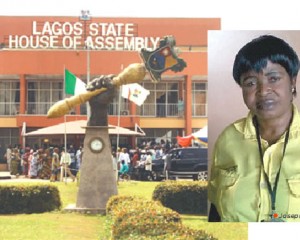 Lagos House To Honour Airport Cleaner Who Returned N12m To...
Lagos House To Honour Airport Cleaner Who Returned N12m To...May 27, 2015 0
Lagos State House of Assembly has invited Josephine Agwu... -
 African, gay campaign and neo-racism
African, gay campaign and neo-racismSep 28, 2013 0
As I have argued from the beginning of my position on this... -
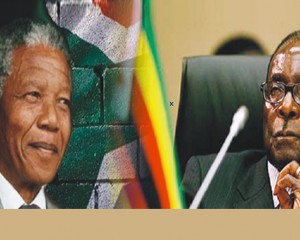 Between Mandela and Mugabe
Between Mandela and MugabeSep 20, 2013 0
South Africa legend and nobel laureate, Nelson Mandela,...
Entertainment
Nov 17, 2017 0
Tiwa savage is a natural singer with sense of passion to show case the dynamic qualities she possessed, which has earned her accolade and support from numerous fans across Africa and United Kingdom....


















